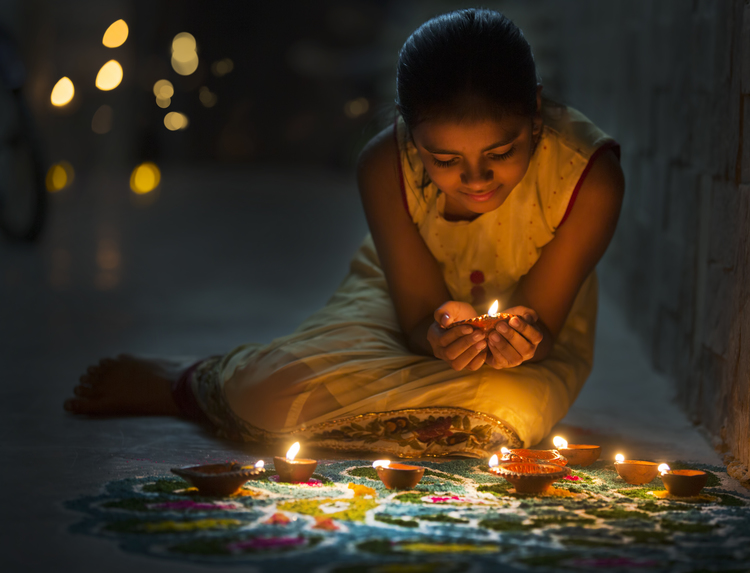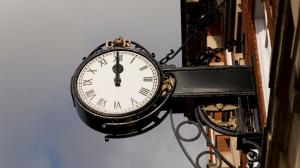
Do You Get a Black Moon?
What is a Black Moon, and why does it happen in December?
Diwali is also known as Deepavali, Dipavali, Dewali, Deepawali, or the Festival of Lights. It is celebrated in October or November each year. Diwali celebrations can last for about five days.

Dipa oil lamps are often lit for Diwali celebrations.
©iStockphoto.com/SoumenNath
Millions of Hindus around the world celebrate Diwali with gift exchanges, fireworks and festive meals. The Diwali celebration in India takes place when the monsoon season ends and the weather is mild and pleasant. People try to pay off their old debts, make or buy new clothes and thoroughly clean their houses as part of the festival preparations. House exteriors are whitewashed and sometimes decorated with designs drawn in white rice flour and filled in with color. Buildings are traditionally illuminated with oil-burning bowls called dipa lights, or more recently, with strings of artificial lights. People spend time with their friends and family.
On the first day of the festival people pray, eat a special breakfast consisting of different foods, and the Hindu goddess Lakshmi’s statue is carried throughout the streets in procession. Children are sometimes given candy or toys from booths set up for the occasion. In southern India children wear flower wreaths on their heads or anklets of bells. Boys in some areas construct elaborate castles and forts of mud and display them for visiting guests. After dark there are fireworks and people who live near rivers float lighted lamps on tiny rafts. To add to the festival of Diwali, melas (fairs) are held throughout India. These are found in many towns and villages.
Diwali is a gazetted holiday in India so government offices and many businesses (including local offices and shops) are closed. It is not a nationwide public holiday in countries such as Australia, Canada, the United Kingdom and the United States but some cities hold large celebrations for the Diwali festival.
Diwali is called the Festival of Lights and is celebrated to honor Rama-chandra, the seventh avatar (incarnation of the god Vishnu). It is believed that on this day Rama returned to his people after 14 years of exile during which he fought and won a battle against the demons and the demon king, Ravana. People lit their houses to celebrate his victory over evil (light over darkness). The goddess of happiness and good fortune, Lakshmi, also figures into the celebration. It is believed that she roams the Earth on this day and enters the house that is pure, clean, and bright.
The Diwali festival in southern India often commemorates the conquering of the Asura Naraka, a powerful king of Assam, who imprisoned thousands of inhabitants. It was Krishna, a deity worshipped in Hinduism, who was finally able to subdue Naraka and free the prisoners. Diwali celebrations may vary in different communities but its significance and spiritual meaning is generally “the awareness of the inner light”. It is also the beginning of the new financial year for the business community.
Lamps, fireworks and bonfires illuminate this holiday, as the word “Deepawali” means “a row or cluster of lights” or “rows of diyas (clay lamps)”. The festival symbolizes the victory of righteousness and the lifting of spiritual darkness. During Diwali, or Deepawali, the goddess Lakshmi, who symbolizes wealth, happiness and prosperity, is also worshipped.
Note: It is not possible to mention every activity that takes place on this occasion as celebrations vary in different regions. However, this article provides a general overview of the main celebrations that usually occur during this event. Moreover, the date in which Diwali is celebrated may vary depending on locations and calendar interpretations.

What is a Black Moon, and why does it happen in December?

When will the next comet be visible?

Why do mornings keep getting darker after the December solstice?

How does the 12-hour clock system work? Is midnight 12 am or 12 pm?